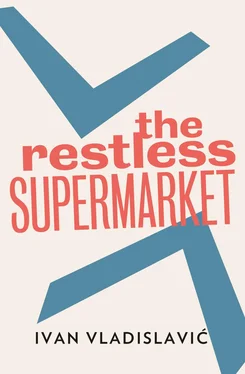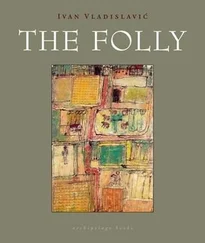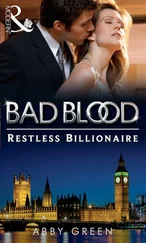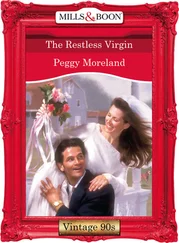I myself plump for nothing, plain and simple. Make it nothing, the mark insists. Plunge it in this white hole, where it will vanish for ever. Paint it the colour of this little swatch: paper-white on paper-white.Through this soap-bubble loop, this circus-lion hoop, this insatiable and unshuttable maw, an endless quantity of bad copy has passed and been voided. Spoilt material, repetitious and dull verbiage, misplaced stops, misspellings, solecisms, anacolutha. Throw them in, sear them, make them hop. Keep our country beautiful. Imagine, if you can, the mountain of delenda purged from the galleys of the world. Who would build on such a landfill?
*
Our accompanist fell silent. For three days, the piano stood in the corner as if Mevrouw Bonsma, bless her, had been packed away inside it on a bed of dry ice and crumpled sheet music. Then the removal men, not the brawny louts one would have preferred, but a cadaverous gang of body snatchers, came and carried it away. Urchins brandishing ceremonial bottles of glue made a guard of honour at the bottom of the escalator, but the piano would not fit through the front door. It went instead through the kitchen, like a deep-freeze, and out of the service entrance into the alley at the back of Meissner’s Building.
Once Spilkin went looking for Mevrouw Bonsma to invite her for tea. But our humble servant, whom she remained, sent word that she could not face the Café ‘in her private capacity’. He came back in a mood and would not speak to me for a week, as if the absence of harmony were my fault.
Without the tacking thread of her melodies, things felt disconnected and out of sorts. The television did not help. In place of Mevrouw Bonsma, we had music video films. The Balaam Box again: scraps from the cutting-room floor strung together in no discernible order. It was enough to make your hair curl. As it was, the so-called artists had the daftest hairdos. I recall one in particular, as bald as a stone except for a little pile of greasy brown curls like a dog’s dropping on the crown of his head. Claimed to be a doctor — a dentist, Darlene said — but a veterinarian was more likely.
My fear had been that my nerves were dying back, like the branches of an old tree in winter. I had flattered myself that I was the pachydermatous one, Fowler be damned. But perhaps it was the very opposite. Was my skin not too thin, parched to a wash of lime-white over my bones, with the nerve-endings jangling in the noisy air, raw as the root hairs of an uptorn plant? Was the skin of the world not thickening, growing hard with calluses? Even Spilkin, with Darlene at his knee, clapping her hands delightedly every time they solved one of the straight clues on the two-speed puzzle, had grown deaf to the bedlam around him.
*
The new order? The new disorder is more like it. Mrs Mavrokordatos was right: television was educational. It taught the geography of conflict. In time, every lost soul with a goggle-box would know the way to Bosnia and Baghdad.
And it taught the grammar of neglect. These were ungrammatical years. Could no one speak English properly any more? And would the solecists be the very ones who insisted on speaking the most? Suddenly everybody was talking to everybody else. Talks about talks. About talks about talks. And so unidiomatically on. I had the impression that no one understood a word anyone else said. I stopped watching. Lip-reading would no longer suffice. After Spilkin left, there was no one to see to my eyes. And, of course, his charts were always custom-made. I tried the eye clinic at the hospital once, but I had the chart down pat.
The circle unravelled. Some invisible hand had found a loose thread, and tugged at it constantly. I kept a list of departures and destinations in my notebook, or I’m sure I should have lost track. I might have made this list available to Empty Wessels when he started planning the Goodbye Bash. But why should I stir that pot of mischief? Even the latecomers drifted off eventually, and I added them to the bottom of the list — until the exercise began to bore me. In the end, I was left with the Slob and Wessels. And then the Slob slouched away too — going home, he said, to fight in the war of independence, which I didn’t believe for a second — and one fine morning, it was just Wessels and me. Hopefully, I put his name on the list, but he refused to go.
It became a labour of Hercules to sustain my interest in ‘The Proofreader’s Derby’. Not from a lack of material, of which there was a superabundance, but from a fatalistic certainty that it would do no good. Nonetheless, I persevered. Wessels was always taunting me that I would never finish it; and after a while, the urge to frustrate this ill-natured prediction was practically all that kept me going.
From time to time, I managed a letter to the press. There was a particularly fine one on the absence of rubbish bins in the conurbation — the poor were stealing them, I’d heard, for brewing beer and doing the laundry. I won’t give the letter here, but it made an excellent companion piece to one from years before on the same subject — only then, the absence of bins had been put down to the war against terrorism. There was also a broadside on standard pronunciation, which I fired off the day after we finally saw the back of Darlene (with Spilkin in tow). Showed considerable sensitivity on my part, I thought — the very quality that Merle, of all people, declared I lacked. A Parthian shot over her cardiganed shoulder.
‘Where are you off to?’ I asked Spilkin.
‘We’ll be aestivating at the coast, in some ravaged urban area or other.’
Smart Alec. It took me a week to figure it out. I left it off my list of destinations on purpose and sent a spineless question mark traipsing after him.
*
‘You never told us you had a daughter! Or have you been hiding a young wife away from us all these years?’ There was a picture of this ‘relative’ of mine in the sports section, Wessels said. Tilde Tearle. A very athletic young woman, a marathon runner, who always found the energy to smile as she crossed the finishing line in yet another test of endurance.
How had she come by such a beautiful name? I wondered. Perhaps her mother was Spanish.
When I made enquiries, she turned out to be a Tilda. Short for Matilda, I presume, and nothing diacritical about it. I might have known it was too good to be true.
*
The theme of Merle’s valedictory address was fault-finding . ‘You’re always picking nits, Tearle,’ she said. She had never called me ‘Tearle’ before and I was touched, but she spoilt it by adding, ‘You’re like a dog with a bone, worrying and gnawing, trying to find the weak spot in everything you get your teeth into.’
‘It’s my training.’
‘But it upsets people so.’
‘An occupational hazard.’
‘You’ll do what you have to do.’ (As if she was talking to an old dog about new tricks.) ‘But I can’t help thinking you’re a bit of a round peg in a square hole here. You don’t fit in. You should go somewhere else, somewhere you belong. What’s the point of rattling about?’ (I puzzled over that round peg afterwards. Was it a slip of the tongue? Or did she mean that I was out of shape?) ‘If you really must stay to the bitter end, at least you could try not to make the people around you unhappy. Find a little compassion in that hard heart of yours.’ (Hard. Bitter. Dry. Variations on a theme.) ‘Look on the bright side. Open up. Try talking to people properly, instead of playing these silly games.’
What, I might have asked, had become of the much-vaunted idea of fun? And if she was such an optimist, why was she abandoning ship? I’d have given long odds it was the dirt on the streets, the noise, the creeping decay. And I shouldn’t be surprised if she found the liaison between Spilkin and Darlene distasteful too. But I wasn’t going to pry.
Читать дальше












